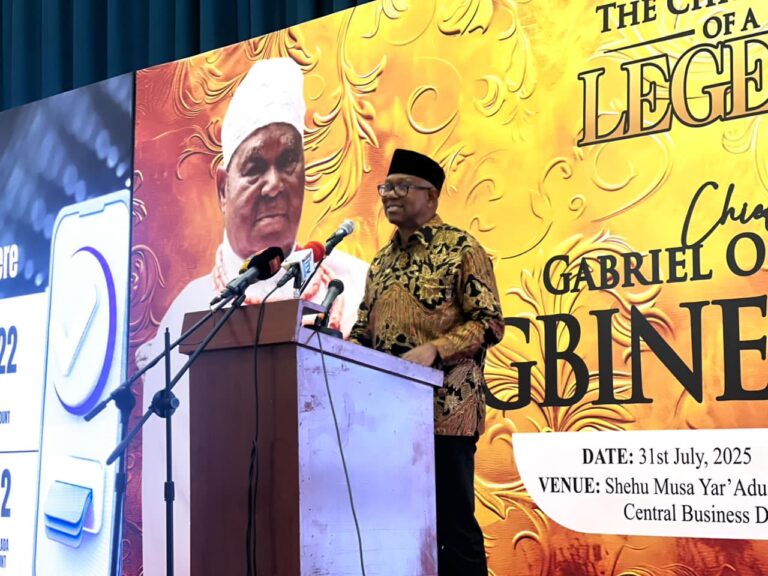August 1, 2025 | Abuja
By Peter Omopo
Former presidential candidate of the Labour Party, Peter Obi, has taken a swipe at the Federal Government’s practice of conferring national honours on political figures, calling instead for a reorientation that prioritises entrepreneurs, innovators, and other productive citizens.
Speaking in Abuja on Thursday during the public presentation of The Chronicles of a Legend, a biography chronicling the life and legacy of renowned businessman and philanthropist, Chief Gabriel Igbinedion, Obi criticised the country’s current system of recognition as misplaced and in urgent need of reform.
“The Grand Commander of the Federal Republic (GCFR) and Grand Commander of the Order of the Niger (GCON) should be awarded to entrepreneurs and productive people, not politicians,” Obi stated. “We have to change the way we honour people.”
The former Governor of Anambra State used the occasion to commend Igbinedion’s trailblazing contributions to Nigeria’s aviation sector, private education, and cultural preservation. According to Obi, achievers of such calibre—who have made tangible impacts in job creation and national development—deserve greater national recognition than they currently receive.
“We live in a country where we celebrate people who are not supposed to be celebrated,” he said pointedly. “If we did things right, the honour we’re giving Igbinedion today would have come long ago and would have been far greater.”
Obi further noted that if Nigeria operated as a truly productive economy, more than 20 million citizens could have benefitted from a thriving entrepreneurial sector. “Igbinedion alone employed over 17,000 Nigerians. If we valued productivity, he would be a national icon by now,” he remarked.
His comments come in the wake of ongoing public debate surrounding the Federal Government’s recent conferral of national honours, alongside monetary rewards and housing gifts, on the Super Falcons for winning the Women’s Africa Cup of Nations (WAFCON).
Although many celebrated the gesture, critics have argued that similar recognition should be extended to unsung heroes in sectors like education, healthcare, and national security.
In July, President Bola Tinubu conferred national honours on a range of Nigerians—both living and posthumously—for their perceived contributions to the country’s progress. The honours list, however, has sparked widespread debate about merit, fairness, and the enduring politicisation of national awards.
Obi’s remarks have once again stirred conversation on the need to redefine the nation’s value system—placing emphasis on productivity, service, and innovation over political patronage.

